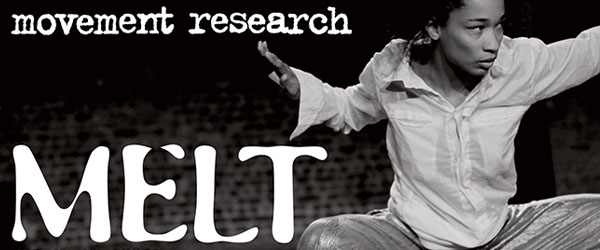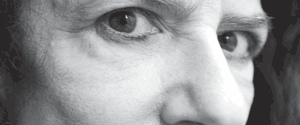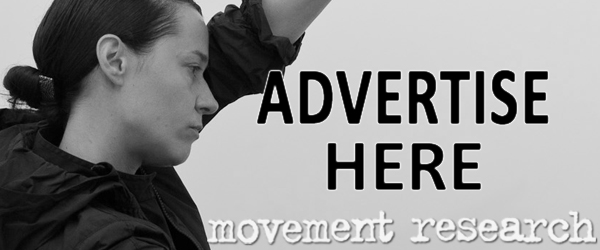Critical Correspondence
- 1 comment
- MRPJ Project
- 3.5.09
MRPJ#15/Moving Communities: Editor’s Note
“Living the Questions” by Joan T. Hocky, co-Editor with George Emilio Sanchez
The contributors to Performance Journal #15: Moving Communities come from many places. They are pioneers who have been mining the field for years; novices who are making their first forays outside of the box; artists working in quiet, unheralded ways; and others with curriculum vitae nearly as long as this Journal. As someone who has been working for over fifteen years to combine interests in the arts, community development and the urban infrastructure, I’m bemused by the odyssey—from the time I had the weirdest resume anyone had ever seen to now, when every artist, arts administrator and funder I speak to is (or claims to be) involved in community-based or educational art.
Co-editing this issue has brought up a number of conflicting, co-existing responses (which seems appropriate for an issue dedicated to the open-ended and multi-faceted arena of “translating, teaching, shaping and sharing art.”) I’ve been moved and inspired by the commitment and creativity people bring to their work. I wrestle with the assumptions, naiveté, subtle but pervasively patronizing tone, or an “I” that overwhelms and overshadows this amorphous beast we call “community.” I grow frustrated by romanticized, convoluted notions of good public citizenship, as if teaching or community-organizing is inherently more generous an act than “pure” art-making. Can we admit that the same dualistic tendencies—aspiring to reach outside and wanting to be the center of the universe—co-exist whether locked in the studio or teaching hip-hop dance on a rooftop?
I’ve has to acknowledge that I overlay my own filter on what I read. I’ve often experienced “arts communities” as homogenous and insular, finding it insular, finding it disorienting to be in a theatre or performance space where everyone is of a similar age, class, and race when right outside the door beats this amazingly diverse, pluralistic city. But some of our contributors have felt nurtured and supported by an “arts community;” for them, expanding into a broader arena is uncomfortable and even scary.
The contributors embody a huge range of outlooks, motivations, senses of identity, and comfort zones. I’ve tried to accept the validity of each perspective, and the challenges inherent in any venture that breaks new ground for its maker. Ultimately, I feel respect and appreciation for the courage people have shown in trying to grapple with complicated issues, often exposing their vulnerability and confusion in the process. It’s a particular precarious position to be in at this time, when it’s hard to find support for edgy or process-oriented art, work that can’t guarantee a certainty outcome (and may even “fail,” in traditionally measurable ways). So it seems fitting that I end up framing questions rather than answers, questions provoked by reading this Journal.
How do I deal with discomfort, unfamiliarity, and lack of solid ground, and find the inner strength to be vulnerable in an unfamiliar place and role? How do I exchange opinions, passions, and convictions and still sustain and open and collaborative process?
Can I acknowledge difference without being bound by it, and then do the hard work of finding common ground—whether that is being a white person working in a community of color, being from one socio-economic class dealing with those from different background, or dealing with people constrained in ways I can only imagine?
How do I ground my activity in cultural understanding and an historical perspective, while realizing that conceptual knowledge is just a tool, and it’s how I use this understanding that’s the real learning process? Can I simultaneously be respectful and realistic: appreciating the cultural assets of community while also acknowledging its ongoing problems?
Is there a way to keep pushing these questions, to find ways to support collectively the learning process? How can I learn from others, grow from my mistakes, keep asking questions I cannot yet answer? How can I convey the importance of creating relationships rather than products or projects?
In Letter to a Young Poet, Rilke (one of my favorite dead white men—we all have something to contribute!) writes:
And the point is to live everything
Live the questions now
Perhaps you will gradually without noticing it
Live along some distant day into the answers.
Here’s to the journey.



post a comment ›